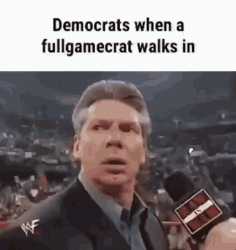[48 / 1 / 13]
>https://abcnews.go.com/Business/wireStory/brazil-holds-historic-election-lula-bolsonaro-90867107
RIO DE JANEIRO -- Brazilians were voting on Sunday in a highly polarized election that could determine if the country returns a leftist to the helm of the world’s fourth-largest democracy or keeps the far-right incumbent in office for another four years.
The race pits incumbent President Jair Bolsonaro against his political nemesis, former President Luiz Inácio Lula da Silva. There are nine other candidates, but their support pales to that for Bolsonaro and da Silva.
Recent opinion polls have given da Silva a commanding lead — the last Datafolha survey published Saturday found a 50% to 36% advantage for da Silva among those who intended to vote. It interviewed 12,800 people, with a margin of error of two percentage points.
Fernanda Reznik, a 48-year-old health worker, wore a red T-shirt — a color associated with da Silva's Workers' Party — to vote in Copacabana, where pro-Bolsonaro demonstrators often congregate, and had been waiting in line for 40 minutes.
“I’ll wait three hours if I have to!" said Reznik, who no longer bothers talking politics with neighbors who favor Bolsonaro. "This year the election is more important, because we already went through four years of Bolsonaro and today we can make a difference and give this country another direction.”
Bolsonaro’s administration has been marked by incendiary speech, his testing of democratic institutions, his widely criticized handling of the COVID-19 pandemic and the worst deforestation in the Amazon rainforest in 15 years.
But he has built a devoted base by defending conservative values, rebuffing political correctness and presenting himself as protecting the nation from leftist policies that he says infringe on personal liberties and produce economic turmoil.
RIO DE JANEIRO -- Brazilians were voting on Sunday in a highly polarized election that could determine if the country returns a leftist to the helm of the world’s fourth-largest democracy or keeps the far-right incumbent in office for another four years.
The race pits incumbent President Jair Bolsonaro against his political nemesis, former President Luiz Inácio Lula da Silva. There are nine other candidates, but their support pales to that for Bolsonaro and da Silva.
Recent opinion polls have given da Silva a commanding lead — the last Datafolha survey published Saturday found a 50% to 36% advantage for da Silva among those who intended to vote. It interviewed 12,800 people, with a margin of error of two percentage points.
Fernanda Reznik, a 48-year-old health worker, wore a red T-shirt — a color associated with da Silva's Workers' Party — to vote in Copacabana, where pro-Bolsonaro demonstrators often congregate, and had been waiting in line for 40 minutes.
“I’ll wait three hours if I have to!" said Reznik, who no longer bothers talking politics with neighbors who favor Bolsonaro. "This year the election is more important, because we already went through four years of Bolsonaro and today we can make a difference and give this country another direction.”
Bolsonaro’s administration has been marked by incendiary speech, his testing of democratic institutions, his widely criticized handling of the COVID-19 pandemic and the worst deforestation in the Amazon rainforest in 15 years.
But he has built a devoted base by defending conservative values, rebuffing political correctness and presenting himself as protecting the nation from leftist policies that he says infringe on personal liberties and produce economic turmoil.

